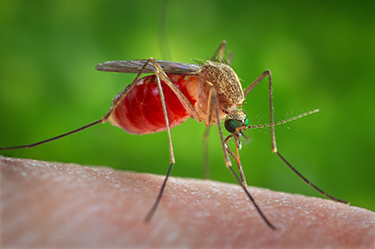West Nile virus cases have spiked across the U.S. this summer, with high rates of neuroinvasive disease among infected people.
As of Sept. 12, 879 human cases of West Nile virus have been reported in 43 U.S. states, according to the Centers for Disease Control and Prevention.
While West Nile virus is endemic in the U.S. and cases occur annually, some years have more than others, as do some regions. Cases this year are clustered mainly in the West and Southwest U.S., with Colorado outpacing other states by a wide margin. While California has experienced 94 cases and Arizona has had 72, Colorado has reported 243 cases, including 11 deaths.

About 65% of reported infections in 2023 have led to neuroinvasive disease, which can cause permanent nervous system damage or death.
As the U.S. becomes warmer with climate change, mosquitoes are becoming a year-round problem in more states. And scientists are concerned that the Culex quinquefasciatus mosquito, the main transmission vector for West Nile virus, is becoming resistant to pesticides.
“It could be a situation with survival of the fittest, where those that are not killed are the ones who are reproducing and passing that on,” Jeni Stolow, PhD, MPH, an associate professor at the Tulane University School of Public Health and Tropical Medicine, told The Nation’s Health.
Mosquito control workers may also not be dosing enough to make a major difference on the thriving Culex population, she suggested. She attributed the Culex’s growing U.S. range mostly to climate change.
West Nile is especially dangerous for older adults, children under 5 and immunocompromised people. Most people experience no symptoms, but those that do may have a fever, headache, joint pains, diarrhea or a rash. Fatigue and weakness can last for months.
While there are no vaccines or specific treatments for West Nile virus, people can take steps to prevent mosquito bites. CDC recommends using repellent, wearing loose-fitting long sleeve shirts and pants, using screens on windows and doors, and avoiding being outdoors at dusk and dawn, when mosquitoes are most active.
APHA’s Get Ready campaign has a shareable graphic on mosquito bite prevention.
Photo caption: The Culex quinquefasciatus mosquito, the main transmission vector for West Nile virus, may becoming resistant to pesticides. (Photo courtesy CDC/James Gathany)